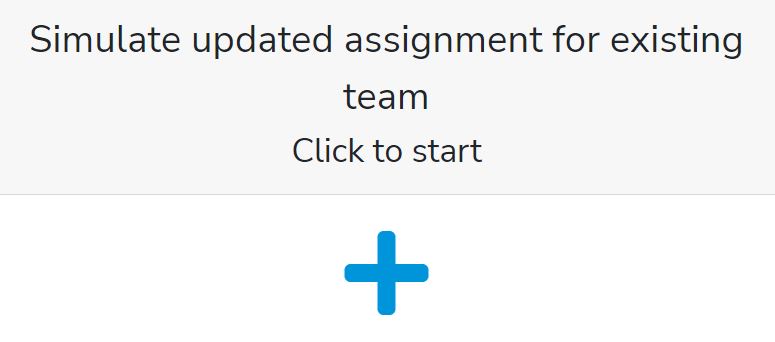What sets us apart? We have developed Team-composer based on scientific insights about collective intelligence.
Within psychology, collective intelligence is a dominant theory for explaining and predicting differences in team performance.
Predicts team performance
Helps you to optimize the team assignment
Based on scientifically proven concepts
Team creation is based on Collective Intelligence
Team creation is based on fixed team roles
Matches team members with each other
Matches team members with the assignment
Matches team members with fixed roles
Compares various team compositions
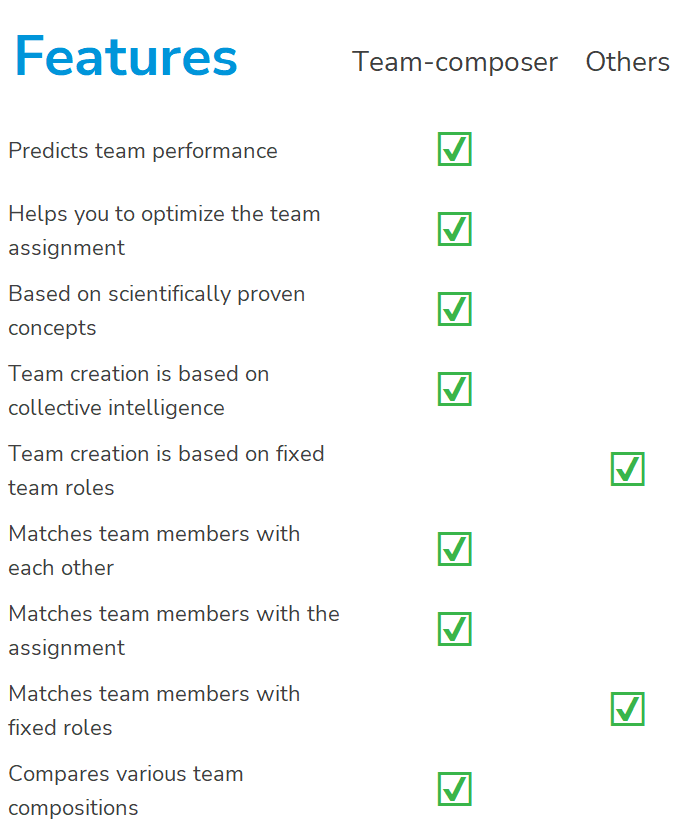
At Team-composer, the unique mission of the team comes first. Without a common goal, teams become loose sand. What makes Team-composer unique is our expert module that allows you to check the feasibility of each team assignment immediately. Enter your starting conditions and get advanced insights into the risks of the team assignment.
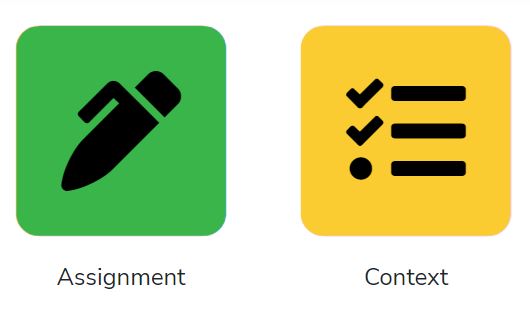
The (dominant) scientific literature on team composition is crystal clear: the specific starting conditions of a team assignment determine team composition. Each unique team assignment requires a particular composition of the team. By focusing on the nature of each assignment, Team-composer goes beyond all the tools used to date to assemble teams.
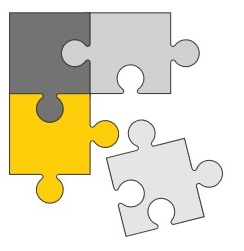
We know from the dominant psychological literature on collective intelligent teams that, for example, the social intelligence of individual team members is important for team performance. Therefore, Team-composer measures social intelligence directly with a test developed for recognizing complex emotions, the best measure of social intelligence.
Team-composer also uses biodata and several questionnaires for thinking style or cognitive diversity, resilience, and self-determination. We have designed these instruments to measure those constructs critical to working in a team. Thus, Team-composer uses more psychometric tools to generate high-quality data and make sound predictions about team chemistry.
Traditional team instruments work with single self-descriptive questionnaires. Social intelligence is “measured” with, for example, a big five personality questionnaire. This questionnaire provides information about whether someone is likely to show extroverted or introverted behavior and whether someone is more or less likely to be accommodating (agreeable). On this basis, traditional instruments then make estimates about social intelligence.
Traditional instruments also lack an underlying theoretical model of the team composition needed for a specific team assignment. These instruments assume that colors, typologies, or roles complement each other. But is that always the case? Is more diversity always better? Or should we first take a closer look at the team assignment? For example, does a team assignment with a clearly defined result focused on practical execution, under high time pressure, with a hierarchical management benefit from various colors or typologies? What do we do with a team of 4 members if, according to Belbin, all nine roles must be present? What roles can each team member then take on? All questions to which traditional tools have no answers.
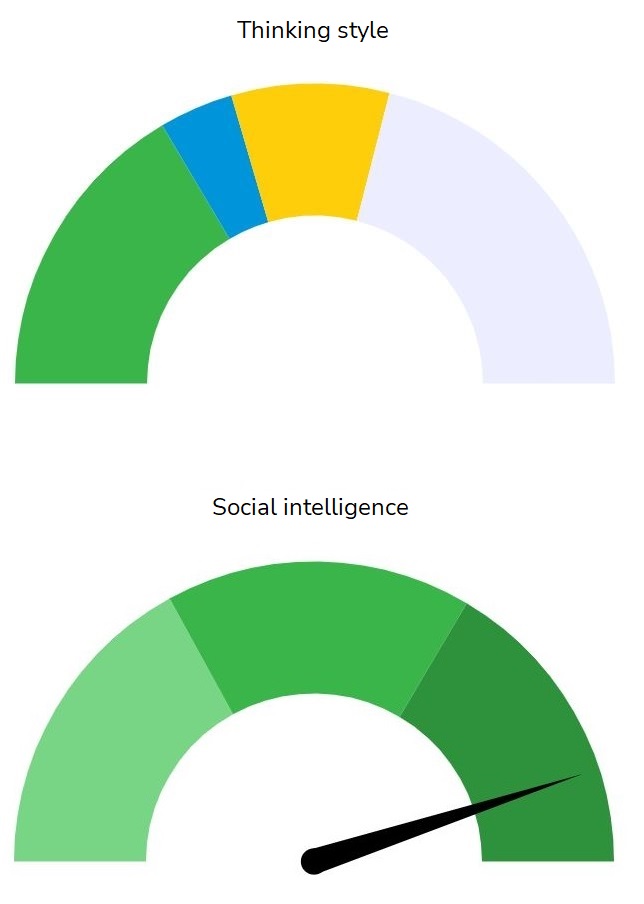
Team-composer does not use competencies. Instead, team managers pre-select potential team members based on proven performance, a resume, an interview, or an assessment. Then, to make the final selection, Team-composer helps.
In addition, we offer a unique online assessment to identify Collective Intelligence and calculate an Assignment Fit Score for each member.
Additionally, we can match multiple assignments to one member’s profile. Every match will generate a different Assignment Fit Score for a team member.
Some traditional tools use competencies to match team assignments and team members. This method has two perspectives:
One perspective assumes a set of competencies that all team members should have to function well in a team. The assumption is that team members who lack these competencies weaken the team.
The other perspective assumes a set of competencies that a team needs. The extent to which these team competencies are present in the various team members is then examined. Unfortunately, while plotting the scores of all team members on competencies is practical, there is no scientific evidence that this method leads to better team performance. Another problem is that psychometric tests and questionnaires do not measure mastery of competencies but potential based on underlying psychological characteristics. The question of whether the competencies are already sufficiently mastered can thus not be answered at all.
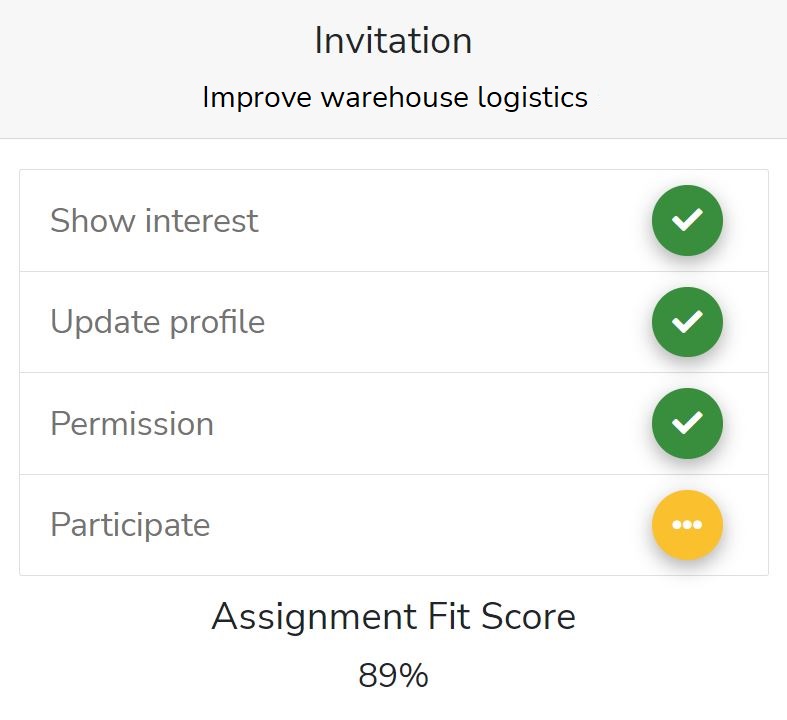
After matching each team member with the team assignment, we add the next step: team chemistry. Team members can strengthen or weaken each other. Team-composer uses algorithms based on scientifically dominant literature that matches every (potential) team member with all other (potential) team members for a specific team assignment. Finally, we rank all possible combinations of team members for your assignment or project.
Composing teams based on Collective Intelligence ensures that a team consists of more than just the strongest individual members. Finally, the strongest collective will form the top team. Team-composer calculates team chemistry and shows you a collective intelligence score (team score).
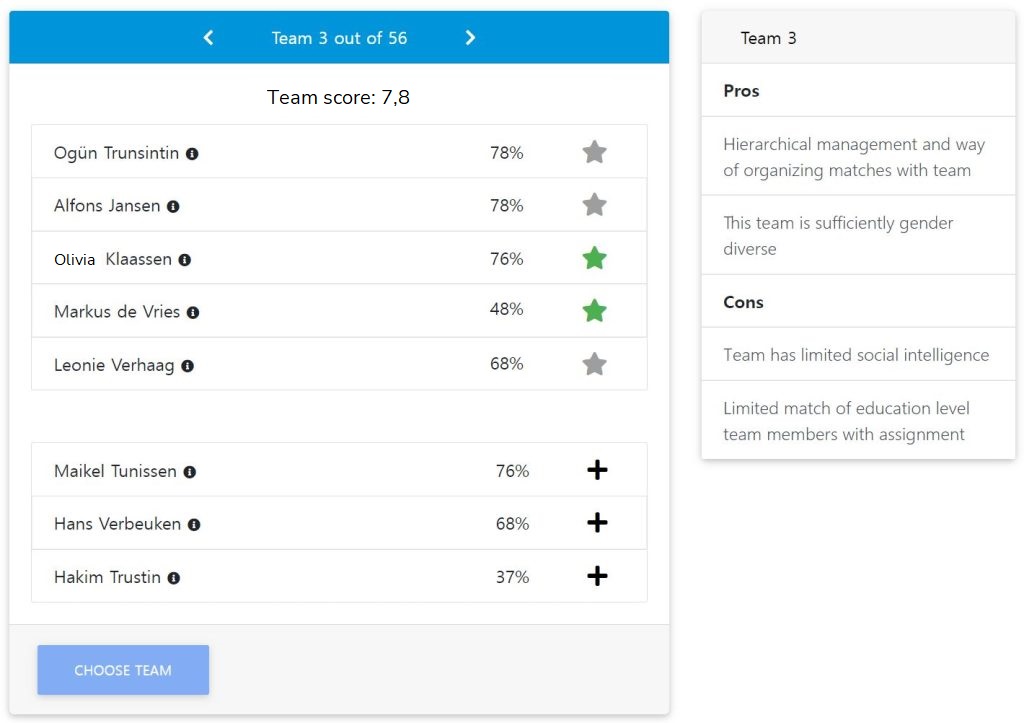
The availability of talent always influences team composition. Due to various circumstances, you often need help to line up the top team anyway. In other words, you need to reconsider your options. Team-composer helps you to play with those options. What is your second team? What if one team member wants to avoid joining the team? What if an employee has already been promised a role in the team; which other members fit best now? We help you to see the effects of all that considerations immediately.
Teams change because of staff turnover. For example, team members may leave, or a team may gradually need more members. Whatever personnel changes your team is undergoing, Team-composer informs and helps you select new members and monitors the team core.
The nature of the team assignment may also change. Assignments, for example, have a life cycle. Is the team you need to innovate also the team that improves, optimizes, and introduces this innovation to the market? Will the original team maintain collective intelligently, or will the team chemistry fade away? With Team-composer, you avoid acidifying your team during different life cycle phases.
